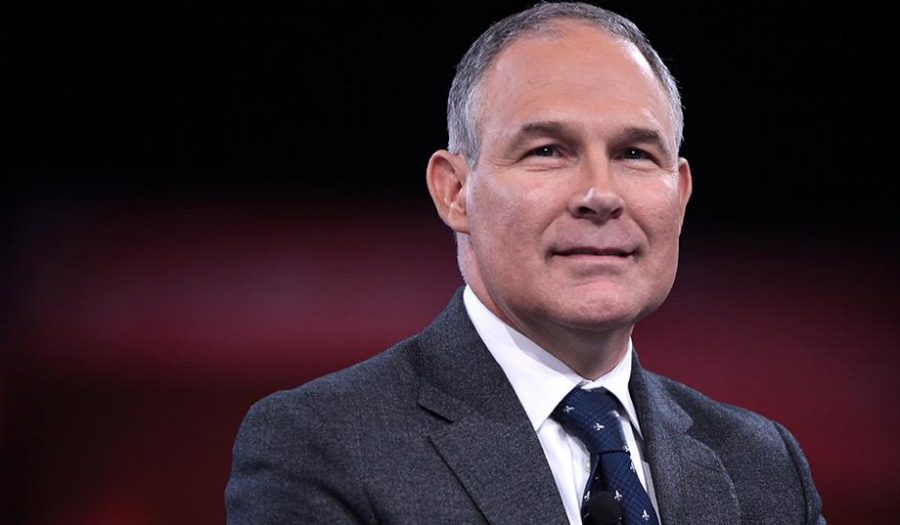The EPA’s Plan to scrap the Clean Power Plan
Scott Pruitt is the head of the EPA.
October 25, 2017
The Trump Administration announced its plan to repeal the Clean Power Plan established by former President Barack Obama on Monday October 9th, 2017. The chief of the Environmental Protection Agency, Scott Pruitt announced this decision to the general public.
Having been established in 2015, the purpose of the CPP is to limit the amount of carbon dioxide released into the air, therefore diminishing carbon emissions which harm the environment as well as increasing the amount of renewable energy throughout the United States. Its main goal is to reduce the carbon dioxide emissions by 32% by 2030 in comparison to 2005. Removing the plan would be an immense setback to all who have been fighting against the looming threat of global warming.
Not that this is completely surprising; President Donald Trump had asserted that he would abolish many of the former president’s policies, including, but not limited to, Obamacare and the Paris climate agreement. Since Trump has already refused to participate in the Paris climate agreement, it would seem unsurprising that he would continue to act on his views of climate change. However, it left many shocked and resentful towards his decisions; Seven Gutierrez (11) strongly disagrees with this repeal and describes that “Obama had a set plan for how…to help the Earth… the Trump administration are being completely counterproductive by undoing everything he has done.”
Scott Pruitt’s main argument revolved around the claim that limiting greenhouse gas emissions was beyond the authority of the government. He also accused the Obama administration of having exaggerated the benefits “by factoring in the gains from curbing global warming in other countries as well as from reducing harmful air pollutants other than carbon dioxide” (New York Times). His decision was probably also influenced by his views on global warming. In his own words, he “think[s] that measuring …human activity on the climate is something very challenging to do and there’s tremendous disagreement about the degree of impact… I would not agree that it’s a primary contributor to the global warming that we see” (Scientific American). Essentially, he is not convinced that human impact is influencing global warming. Therefore, his decision to repeal the Clean Power Plan is affected by his opinions.
Despite the administration’s plan to repeal the CPP, they offer no alternative solution to limiting carbon dioxide emissions. Many states, such as California, are choosing to still continue limiting emissions, regardless of whether the repeal passes or not. They plan to create their own regulations based on the goals listed in the CPP.
New research by the Rhodium Group has revealed that electricity emissions are assumed to fall “27 to 35 percent…”; it is estimated that about 21 states would have had “deeper reductions than they are currently expected to do without the rule… emissions most likely would have fallen further than the 32 percent originally envisioned” (New York Times).
Of course, environmentalists and Democrats are expected to fight back against the repeal. Lawsuits will undoubtedly be filled, and some states have already vowed to take legal action.
Source: ScienceAlert, New York Times, Scientific American






































